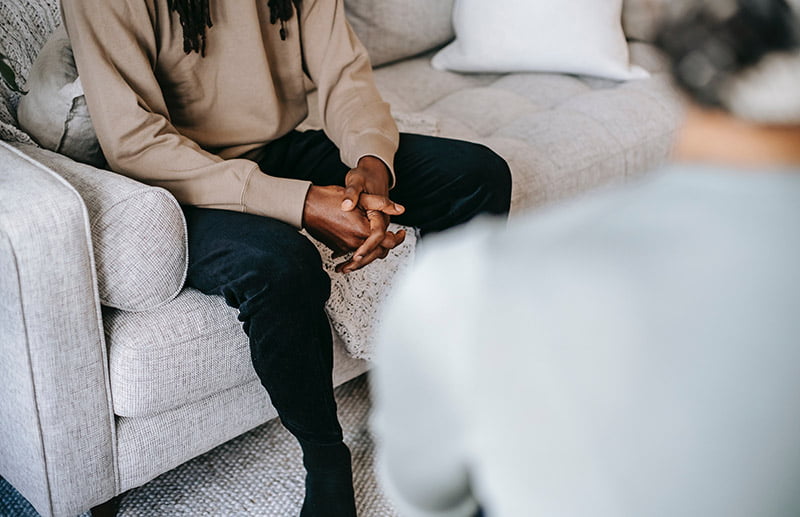The Experience of the First Session with a Psychologist

What is it like to attend the first therapy session with a psychologist?
You may be asking this question if you are thinking of seeing a psychologist for the first time. Or you may be asking this if you have already seen a psychologist and were left wondering whether that experience really showed you what it should, or could, be like.
Let’s face it, when a person decides to see a psychologist there is usually a problem going on for them in their life that they want fixing. So, when they first see a psychologist, they will be feeling the effects of that problem, whatever those effects may be. However, it is likely that there will be other thoughts and feelings, perhaps even worries. There may be feelings of curiosity or concern. “Will I like the psychologist, or will they like me? Will they be able to help me? What is it going to be like?”
It is normal for anyone to be having these, and other, thoughts or feelings.
Why Book a Session with a Psychologist?
People see psychologists for many reasons and for a range of personal issues. What is common amongst all is, usually, a desire for difference in their lives; people who see psychologists often wish for change. They want something to be different.
It is important for everyone, including the psychologist, to keep this in mind. If you are going to be helped, the psychologist has to:
- Help you to identify and talk about the problem, and its causes.
- Understand things from your perspective, as best as they are able.
- Know what you want to achieve from the therapy sessions.
You book a session because you want to be helped with some issue in your life. It is about you.
What Is Involved?
When you first meet with a psychologist, there will be a discussion about important matters such as consent, privacy, confidentiality, and exceptions to confidentiality. There will be a discussion about fees and any reimbursement you can obtain from Medicare.
It is usually the case that you will be asked to fill in some questionnaires. These are designed to allow the psychologist to get some understanding of your issues – to find out where you are at.
Most of the time will be spent in discussion. Everything you say to the psychologist will be kept private, subject to some exceptions that the psychologist will discuss with you. Topics for discussion in that first session are likely to include:-
- Your family of origin
- The current make-up of your family
- What the experience of growing up was like for you
- What you think about yourself: your strengths and any aspects of your personality or behaviour that you would like to change
- The current problem or problems and their possible causes
- Those things that may perpetuate the problem
- Those things that you notice already have helped you or that may help you
These are just some of the many matters that will be discussed.
Importantly, the psychologist should ask you what you want to achieve by attending therapy. What do you want to get out of it? What are your goals?
Is Therapy All About Talking?
In the first session, it is mostly about talking, although there may be some questionnaires to complete and a consent form to sign. In later sessions, you may also be involved in some activities during each session; these will depend on the nature of the problem and what you want to get out of therapy. But in later sessions, it is also mostly about talking.
Quite often, the psychologist will ask you to do some activities between sessions. This will be with your full agreement. What you agree to do will depend on the nature of the issue that you are discussing with the psychologist.
These activities are important, as they give you the opportunity to practice things you have discussed in session with the psychologist.
How Will You Know That Therapy Is Likely to Work?
The rate of progress in therapy varies considerably between people and much also depends on the nature of the issues that are being raised. However, you should be able to tell if it is likely that therapy will help you by the end of the first or second session. It will be likely that therapy will help if, by the end of the second session, you are experiencing the following:-
- You feel that you are getting along with the psychologist. This will include feelings of trust and confidence in the psychologist. It will include a belief that the psychologist has listened to you and done everything to understand your situation. It will include a belief that the psychologist is caring of you and is not judging you.
- You know that the session has been about you and that you have been at the centre. You will feel this if the psychologist creates a space that feels safe to you, that allows you to say what you want to say and where you do not feel forced to disclose issues. You should never feel forced to say things you do not want to say in therapy.
- You believe that everything done by the psychologist has been for a purpose. Sessions with psychologists are not chats; they may feel conversational, but every question and comment from the psychologist must have a purpose. And the focus, of course, must be you.
Are Television Programs a Good Guide to What Psychologists and Therapy are Like?
In a word: No.
Psychologists and the work that they do are often depicted in the media. Next to lawyers and court-room dramas, the police and the military, psychologists are often the subject of portrayal in movies and on TV programs. If you know anything about the way in which the legal system operates, you know that what you see on TV about police-work and court cases is often pure fiction. The same applies to psychology.
Unfortunately, the depiction of psychologists and the work that they do is frequently distorted by Hollywood and the media. There are many bad portrayals of psychologists and psychology, with only a few exceptions. If you want to read more on this topic, this is an excellent review.
Don’t trust what you see on the big or small screen when it comes to psychologists or psychology sessions. Don’t let the media be your guide.
Having a first session with a psychologist may feel awkward when it commences, but a good psychologist will soon help you to settle in. You will quickly get into the swing and, hopefully, you will benefit from the experience. It will be worth it.
Want to know more about this topic? Drop me a line at enquiries@astrapscyhology.com.au
